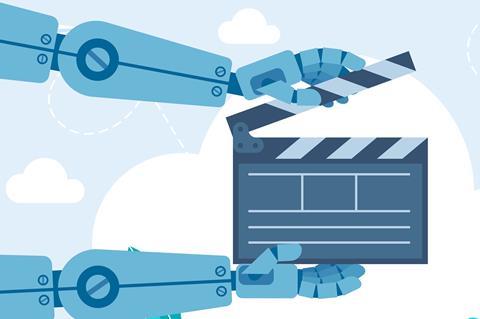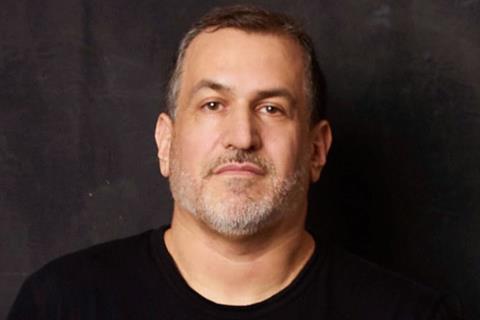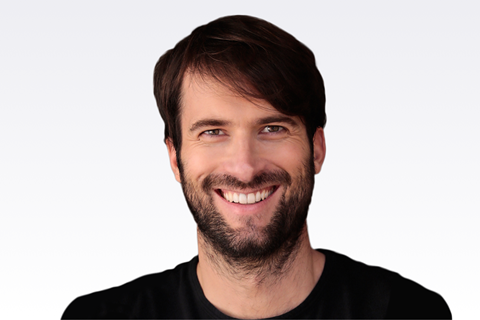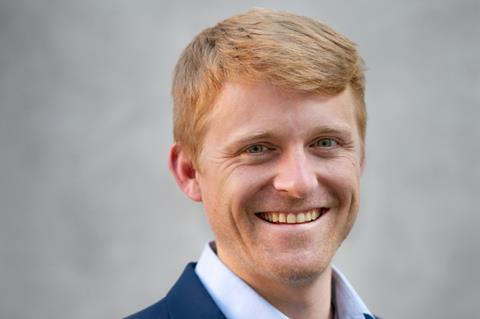As more film and TV companies publicly embrace AI, the technology is one of the key talking points at this year’s AFM conference programme

One of the key talking points at AFM is artificial intelligence (AI) – as it has been at so many festivals and markets this year. The market’s conference programme is peppered with sessions promising to focus on AI ‘platforms transforming filmmaking from creation to distribution’ and ‘real-world AI use cases worth your time.’
The sessions take place as the industry recalibrates its approach to the technology. Many in the entertainment industry remain acutely concerned about AI and its impact. It was only two years ago that US writers and actors went on strike, partly over AI safeguards. Those worries persist: Frankenstein director Guillermo del Toro recently said he would “rather die” than use generative AI in his films. Many in the industry continue to call for guardrails and regulation.
However, a number of film and TV companies are now publicly embracing AI, having previously been reluctant to admit engaging with the technology. Production and distribution giant Fremantle recently launched AI label Imaginae Studios, while Germany’s Beta Film announced AI start-up Chapter41.
Netflix’s co-CEO Ted Sarandos championed AI during the streamer’s recent earnings call. “We are confident that AI is going to help us and help our creative partners tell stories better, faster and in new ways – we’re all in on that,” said Sarandos. “We are not worried about AI replacing creativity.”
The possibilities of AI technology have helped drive stock markets to new highs, and have led to a surge of investment in AI-focused companies. Wonder Studios, a UK company weaving AI into storytelling, recently completed a $12m fundraise.
Among the speakers here at AFM is Scott Greenberg, the former head of animation outfit Bento Box Entertainment and now executive chairman of Othelia Technologies, an AI platform that helps writers and producers manage complex scripts. Ophelia uses AI tech to help structure and visualise scripts. For example, it will track how any changes made to a script will impact on characters and scenes. While its tech uses AI, it is non-generative and does not train on scripts that are uploaded.
Potential opportunities

Greenberg does not believe AI necessarily means that fewer people will be employed in the film and TV industry – creative leads will always be required. Projects might employ smaller crews, notes Greenberg, but there are likely to be more productions as AI drives down costs. The tech might also create unanticipated AI-related jobs.
“The biggest challenge for independent film and television is financing and distribution,” says Greenberg. “If you can bring the cost down and let creative people create original ideas, that’s going to be good for the business. I’m optimistic it will help blossom more creativity and voices we may never have heard.”

Also speaking at AFM is Tobias Queisser, co-founder and CEO of Cinelytic, which offers AI-driven data analytics and predictive forecasting for the entertainment industry. Queisser says there is a perception that film and TV companies using AI and data for business decisions are somehow undermining the creative process. “The common narrative is that data is bad for creativity – that AI just makes you repeat things. The funny thing is, it’s the exact opposite.”
Long before AI took off, Queisser says Hollywood studios mitigated risk when greenlighting movies by focusing on IP-based films, particularly superheroes as well as sequels and prequels. “It wasn’t AI that led them there. It’s because they had limited tools to assess risk,” he says.
Queisser suggests non-generative AI of the type used by Cinelytic is better in forecasting outcomes for original content, based on factors such as the choice of director or actors. “It’s helping the industry get more creative things done. It helps people take risks because they have a better way to assess risks,” he says.

Todd Terrazas, founder of non-profit and AI events organiser Artificial Intelligence Los Angeles (AI LA) and co-founder of consulting firm FBRC.ai, echoes this point. He suggests AI will help filmmakers to be more productive, with lower costs and enhanced quality. AI can be useful in pre-production, for workshopping decisions ahead of going on set – for example on camera setups.
“There are a lot of great innovations in the emerging AI technology space, where it’s just people working smarter, with smaller teams, being more nimble and being able to fail faster,” says Terrazas. “They are taking a lot more creative risk, because they can visualise things more at earlier stages.”















![[L-R]: Amanda Villavieja, Laia Casanovas, Yasmina Praderas](https://d1nslcd7m2225b.cloudfront.net/Pictures/274x183/6/4/1/1471641_pxl_20251224_103354743_618426_crop.jpg)









No comments yet